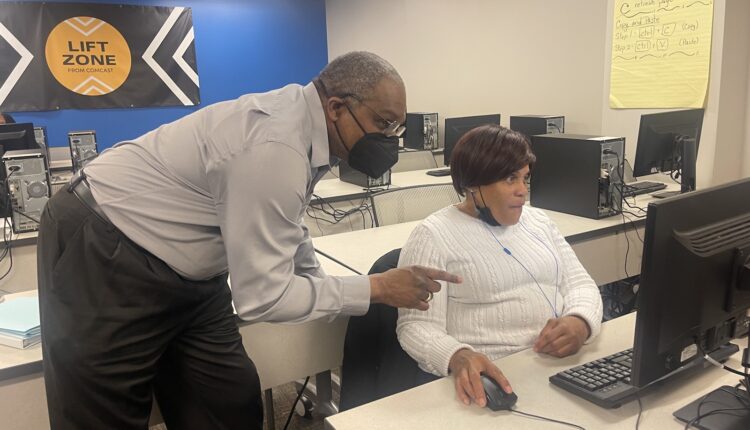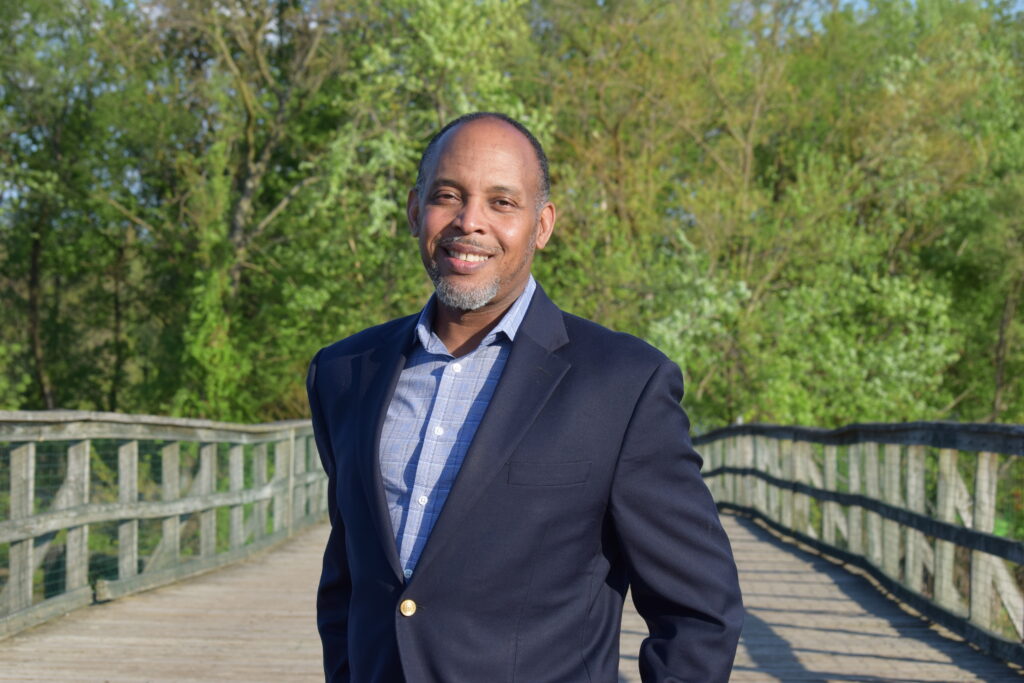
Jimmie Williams: To build digital literacy in DC, bridge the connectivity gap
For thousands of DC’s adults, improving literacy skills can be an essential tool for completing education, getting and keeping a decent job, and staying out of poverty. Increasingly, however, digital literacy has become just as important to lifting up communities across the District.
Though traditional literacy is closely connected to digital literacy, the latter encompasses much more than reading and writing. According to the American Library Association’s Digital Literacy Task Force, digital literacy is the ability to use technology to “find, evaluate, create and communicate information and requires both cognitive and technical skills.” In today’s online world, those lacking in digital literacy face barriers to essential activities such as finding a job and accessing health care, education and housing.

Students, young adults, business owners and older populations can all struggle with digital literacy in different ways, but lack of access disproportionately affects already marginalized communities. Research shows over 119,000 adults in the District read below the first-grade level, with a disproportionate share of that group residing in wards 5, 7 and 8; meanwhile, it’s estimated that about 15% of DC households lack a broadband subscription.
Addressing barriers to both literacy and connectivity while also improving access to technology and infrastructure is a wide-ranging challenge that can be overcome only if government, the private sector and community leaders work together. As a first step, we at the Washington Literacy Center recently convened stakeholders for a discussion about how to improve digital literacy across the District and have summarized the recommendations in a special report. This important document, “Literacy 2.0: Building Adult Literacy in the Digital Era,” offers perspectives from leaders and advocates from across the District on persistent barriers to digital literacy and the opportunities for overcoming them.
Some existing efforts — such as DC Public Schools’ Empowered Learners Initiative, a three-year program to ensure a 1:1 student-device ratio, and the DCPS Digital Equity Act of 2022, which mandates the creation of a student technology plan to close the digital divide — aim to build early digital literacy skills.
For adult learners, programming through libraries or local nonprofits can help fill the gap in both skills and technology. For example, the Washington Literacy Center offers a 10-week in-person and online learning course funded by Crown Castle, a communications infrastructure provider, and we also offer ways to improve introductory computer and digital skills.
Building people’s comfort with technology alongside traditional reading skills like fluency and comprehension is a complex process. To do so successfully, it’s often necessary not just to reinforce fundamental skills but also to overcome social stigma to create safe spaces for learning. However, the lack of ubiquitous, reliable internet access — especially within the most impacted communities — can stall that process before it begins.
DC officials can take critical steps to ensure businesses and residents have world-class connectivity. For example, nonprofits look to the DC government to create policies and rules such as the Digital Equity Act to support the wireless infrastructure that is required to support a vision for digital equity.
One relatively easy way to build the needed networks quickly is to enact policies that allow for the use of innovative and streamlined construction methods to install fiber-optic cable, which would help accelerate the expansion of DC’s communications infrastructure to meet the need for improved connectivity.
Confronting the digital divide requires supporting communities not just with tools and skills but also with access to connectivity and technology they need to navigate the digital world. With close coordination and additional leadership from government, businesses and nonprofits, we can make DC a place where all residents have the opportunity to connect and thrive.
Jimmie Williams is the CEO of the Washington Literacy Center, a nonprofit that has helped DC residents with the greatest barriers and fewest resources learn to read since 1963.
About commentaries
The DC Line welcomes commentaries representing various viewpoints on local issues of concern, but the opinions expressed do not represent those of The DC Line. Submissions of up to 850 words may be sent to editor Chris Kain at chriskain@thedcline.org.


thanks alot of information